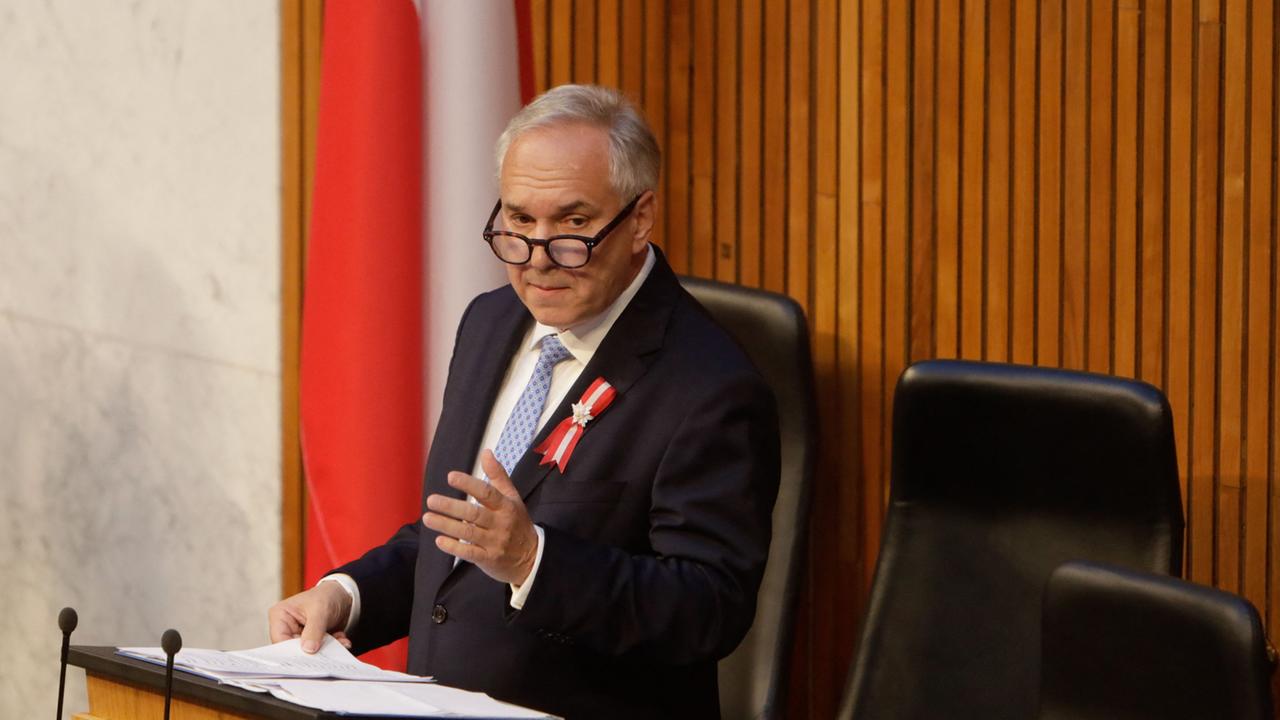For the first time, Walter Rosenkranz, a representative of the right-wing populist FPÖ, heads the National Council in Austria. This met with strong resistance from other parties. The President of the National Council has extensive powers.
In Austria, a politician from the right-wing populist Freedom Party (FPÖ) was elected President of the National Council for the first time. 100 of the 183 MPs voted in a secret ballot for the previous Ombudsman Walter Rosenkranz. The Green Party group unanimously rejected Rosenkranz. Many parliamentarians from other parties also did not support him. Until the vote, it remained unclear whether the FPÖ candidate would achieve the necessary majority.
Traditionally, the strongest party in the Austrian parliament provides the president. However, after the FPÖ became the strongest force for the first time in the parliamentary elections at the end of September, criticism arose.
The Greens tried to prevent Rosenkranz from becoming President of Parliament and started a petition under the motto: “No right-wing extremists at the head of the National Council.” The Jewish Community of Vienna also warned against giving Rosenkranz this office. She criticized his closeness to German nationalist connections and accused him of trivializing Nazi crimes.
Tasks of the Speakers of Parliament
Rosenkranz now holds the second highest office in the state after the Federal President. The President of Parliament is elected for five years and cannot be removed. He manages the business of the National Council and sets the meeting dates. This means he could theoretically delay legislation if he doesn't call a session.
He has the power to deprive MPs of the floor or to call for order. In addition, he represents Parliament externally, maintains contacts with international counterparts and can invite foreign guests. He also takes over the representation of the Federal President if he is unable to attend for more than 20 days, is deposed or dies.
ÖVP with Formation of government commissioned
However, the FPÖ initially plays no role in forming a government because no other party is willing to form a coalition with it. Federal President Alexander Van der Bellen therefore commissioned the ÖVP under incumbent Chancellor Karl Nehammer to form a government.
Van der Bellen justified this with the “completely unusual case” that no other party wanted to work with the FPÖ and its top candidate Herbert Kickl. In Austria, the leader of the strongest party is usually given the task of forming a government. However, FPÖ leader Kickl has not found a coalition partner “that would make him Chancellor,” said Van der Bellen.
Exploratory talks between the ÖVP and the SPÖ will begin on Friday, during which a third coalition partner will be included. The liberal Neos or the Greens come into question, which could lead to a first-ever “three-party” coalition in Austria.




